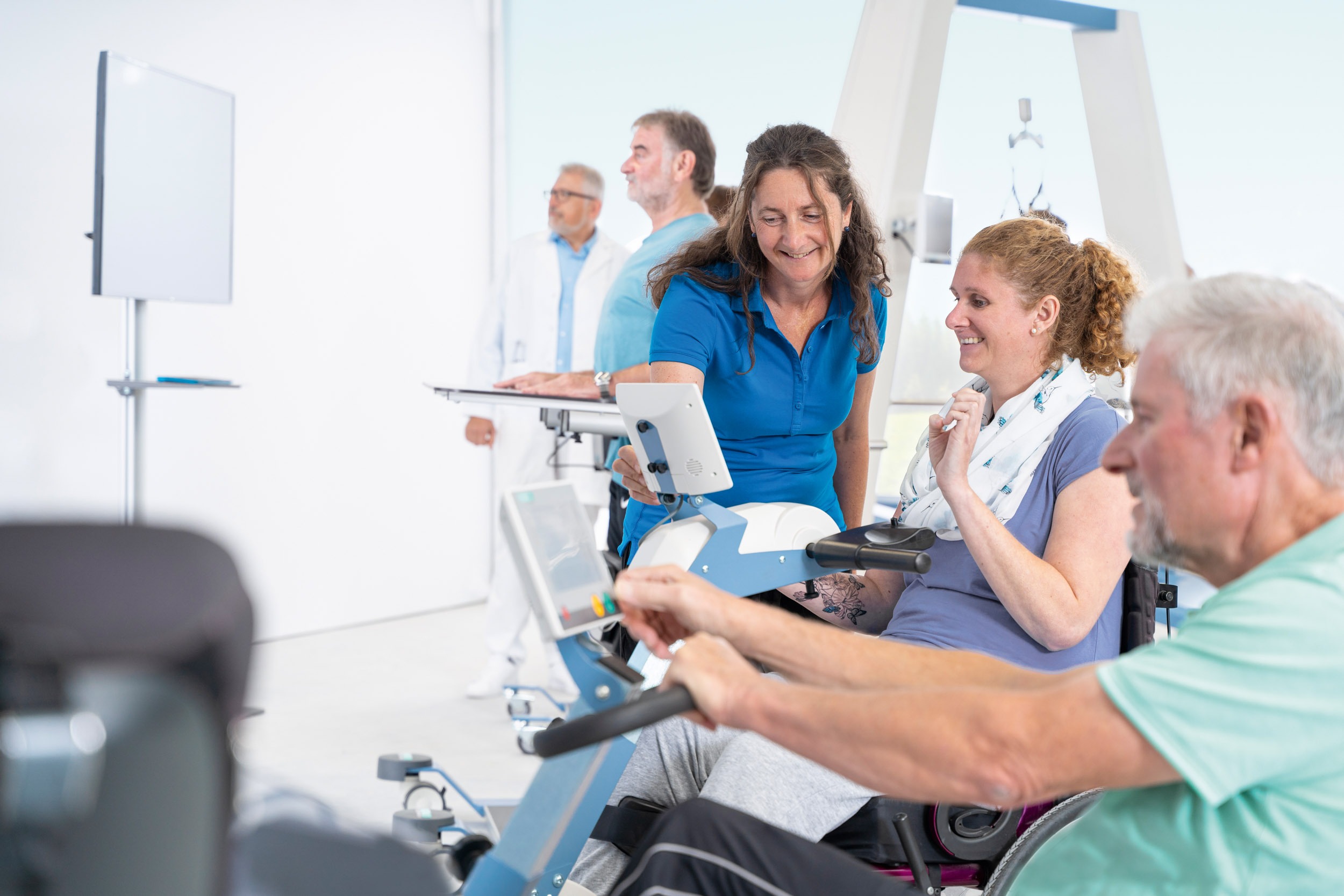
Discover how early mobility training with THERA-Trainer tigo enhances functional independence in heart attack patients. Study shows faster recovery of mobility and daily living skills through robot-assisted therapy.

The aim of the study was to investigate the effectiveness of assistive robot-based mobility training in post-MI patients. The target group of the study were patients of working age (<64 years) who need an effective physiotherapeutic process to return to work and daily life as soon as possible.
A total of 92 (50 men, 42 women) hospitalised post-MI patients with an age of 60.9 ± 2.32 years participated in the study. An early intensive physiotherapy programme (7×/week, 2×/day) with an average duration of 45 minutes per session was performed for each patient. Patients were consecutively assigned to the experimental group (EG) and the control group (CG). 20 minutes of robot-assisted training with the THERA-Trainer tigo bed or seat bike were integrated into all EG physiotherapy sessions. The FIM score (Functional Independence Measures) at admission and after 14 days of rehabilitation was used for assessment. Subjective stress perception and stress intensity were assessed using the BORG scale.
These results indicate an improvement in performing daily activities and in mobility. The researchers conclude that the early use of robotic physiotherapy offers additional treatment benefits in the rehabilitation of patients after a heart attack. As part of the experiment, the patients regularly exercised on the THERA-Trainer tigo, a cycling trainer for use while lying or sitting.


- https://www.ncbi.nlm.nih.gov/pmc/articles/PMC9140991/ Bartík P, Vostrý M, Hudáková Z, Šagát P, Lesňáková A, Dukát A. The Effect of Early Applied Robot-Assisted Physiotherapy on Functional Independence Measure Score in Post-Myocardial Infarction Patients. Healthcare (Basel). 2022 May 18;10(5):937. doi: 10.3390/healthcare10050937. PMID: 35628074; PMCID: PMC9140991.
Related contents
Find related exciting contents in our media library.
Meet our specialists.
Are you interested in our solutions? Schedule a meeting with a Consultant to talk through your strategy and understand how TEHRA-Trainer can help you to advance rehabilitation.
You need to load content from reCAPTCHA to submit the form. Please note that doing so will share data with third-party providers.
More InformationYou are currently viewing a placeholder content from Turnstile. To access the actual content, click the button below. Please note that doing so will share data with third-party providers.
More Information